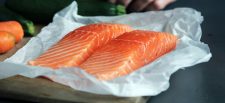Dairy UK has spoken out on what it states is “wilful misrepresentation” after a report was released seeming to urge reduced consumption of food products containing dairy.
Commenting on the publication of Eating Better’s Principles for eating meat and dairy more sustainably, Dr. Judith Bryans, chief executive of Dairy UK, said: “We totally reject any assertion that dairy products are not environmentally sustainable. The dairy sector helps to feed the UK with efficient, predominantly grass-based milk production, high animal welfare standards, safe and nutritious foods.”
“We contribute to food security, look after the land, provide livelihoods and contribute greatly to the national economy. Consumers can keep dairy in their diets in the full knowledge that we take our environmental credentials very seriously as we strive to provide them with the tasty nutritious foods they know and love.”
Dr. Bryans added that the report criticises UK dairy from a global perspective and cherry picks statistics which paint a false picture of the UK industry.
She stated: “Advising consumers to cut their dairy intake is wrong and unhelpful in helping the nation meet its nutritional requirements. The authors are also behind the times on global dairy, which is making strides forward on the environmental front and has even signed a Declaration with the UN Food and Agriculture Organisation.
“Despite the fact that we have a lot to talk about by way of our existing environmental credentials, the UK dairy industry is committed to improving its environmental performance through the Dairy Roadmap, setting challenging targets for reducing the sector’s environmental footprint.”
In response to Dairy UK’s concerns, Sue Dibb, executive director of Eating Better, told Food Management Today: “Eating Better would welcome the opportunity to discuss with Dairy UK how the industry can do more to help reduce the environmental and climate change impacts of livestock production and consumption.
“In the UK we eat a lot of meat and dairy, about twice the global average. The evidence is clear that to lower the climate change impacts from what we eat – and to meet the Paris Agreement targets – we need to significantly reduce the amount of meat and dairy that we consume and shift our eating patterns towards those that are plant-rich.
“Our report sets out a practical guide to choosing ‘less and better’ to encourage a shift towards responsible consumption of all livestock products for our health and environmental sustainability. We are calling on DEFRA to integrate a less and better approach to meat and dairy into its future agriculture plans, and to do more to encourage and reward farmers adopting more sustainable and higher welfare animal farming methods.”
A full copy of the report is available to download here.









